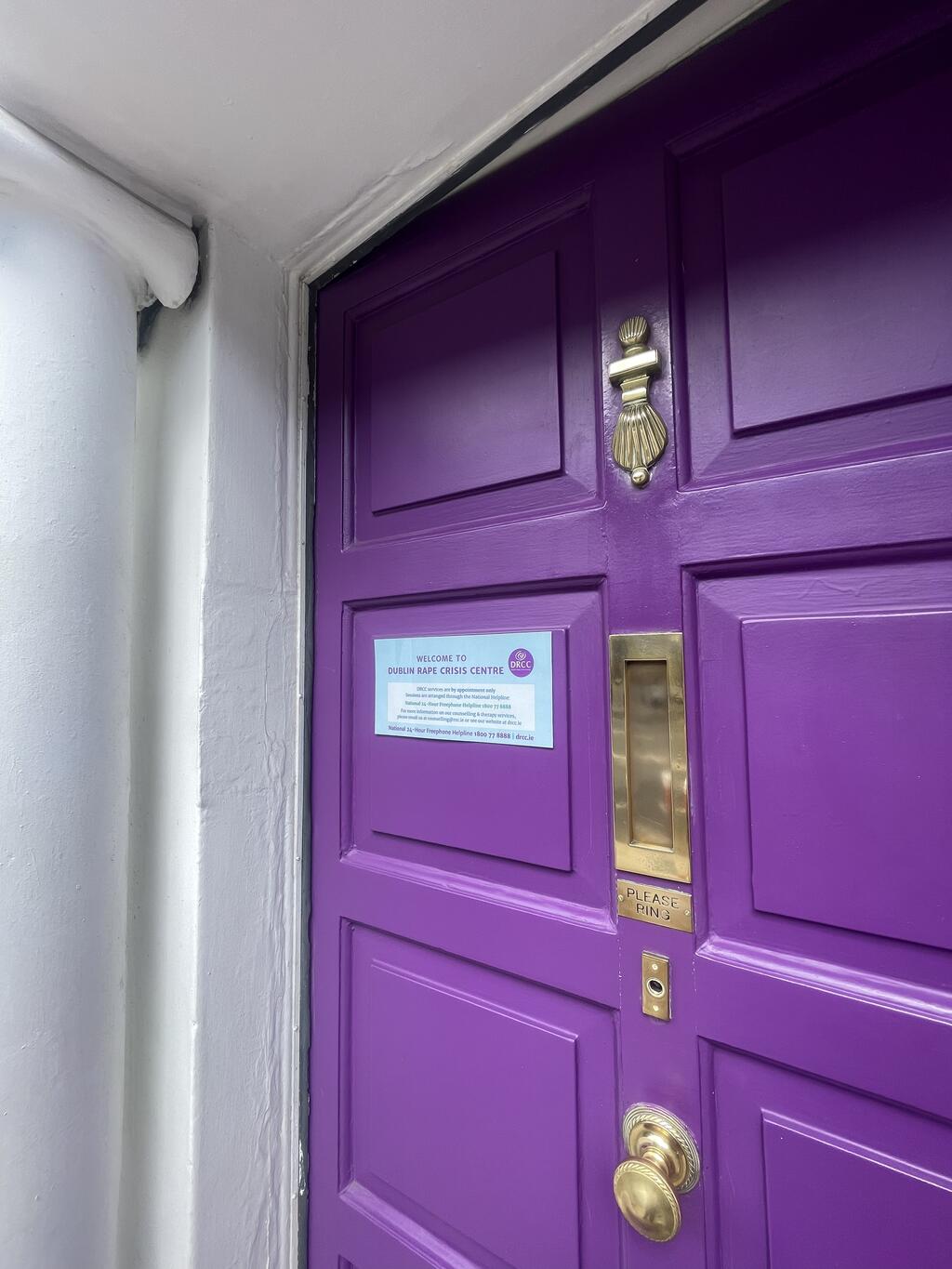Survey shows manifest need to tackle harassment across society
26 September 2023

Significant levels of sexual harassment in Ireland need to be addressed with initiatives across society and properly supported by the new agency responsible for Ireland’s national strategy on domestic, sexual and gender-based violence, said Dublin Rape Crisis Centre, responding to the latest statistical release from the Central Statistics Office today (Tuesday 26 Sept).
DRCC’s CEO Noeline Blackwell said “The CSO’s new data release shows there is widespread sexual harassment around Ireland, with one in 5 people affected by this corrosive, damaging behaviour in the past year. Rates are especially high among young people aged 18-24 years, of whom half have been sexually harassed. We know that such behaviours can escalate into more serious sexual offences; at the least, they help create an environment for serious offending to be minimised and excused. Most importantly, this behaviour can negatively impact and limit the freedom of victims of sexual harassment to live their lives without intimidation and distress.
“Given the level of abuse among young people, it is very timely that we have seen the updating of SPHE curricula in our secondary schools, with Senior Cycle now under review. It is also crucial the new agency planned to assume responsibility for coordinating our national strategy on domestic, sexual and gender-based violence will be able to tackle this issue in a holistic way,” she said.
Contacts with the National Helpline also reflect the national trend caught by the CSO data, with most from young people aged under 25, although contacts come from people of all ages. “DRCC runs the freephone National Rape Crisis Helpline and while the number of calls to the line referring only to harassment is still low, it is often disclosed in the context of other forms of sexual violence,” added Ms Blackwell.
Abuse types ranged from verbal or written harassment to abusive sexual imagery to unwanted physical contact. The survey showed women were over twice (28%) as likely to experience sexual harassment than men (13%), and were almost four times more likely to have experienced inappropriate physical contact (15%) than men (4%). In terms of those carrying out the abuse, almost nine in 10 (87%) who experienced sexual harassment reported that the perpetrator was male.
The CSO data shows disclosure rates where highest among young people, two-thirds of whom told someone about the harassment, most often a friend. Over half of people overall had disclosed their experiences to another party, but the CSO noted that 500 people who took part had never talked about it to anyone before taking the survey. “It is really important that when someone shares something that has happened to them, they are received with kindness and that they hear support is available. Anyone affected by sexual harassment or sexual violence of any form can contact the freephone 24-hour National Helpline for free, confidential support at 1800 778888.
DRCC again acknowledged the immense work of the Central Statistics Office in producing this report.
Comprehensive information on options is also available online at drcc.ie/fyw
/ENDS
Notes for editors:
- The survey on sexual harassment is available on the CSO website.
- Dublin Rape Crisis Centre is a non-governmental, voluntary organisation which has as its mission to prevent the harm and heal the trauma of rape. It offers a suite of services to victims/survivors of sexual violence. It also offers a wide range of training and education to professionals and volunteers.
- We-Consent is a new long-term national programme to inform, educate and engage with all members of our society about consent. More information and resources on having consent conversations at https://www.we-consent.ie/
- Other DRCC services and work:
- DRCC operates the National 24-hour Helpline 1800 778888 to support anyone affected by sexual violence in any part of the country. A webchat support service is available online at drcc.ie Mon-Fri, 10am-5pm. A Helpline Interpreting Service is available for those who do not speak English - more at https://bit.ly/DRCClang
- For those contacting the Helpline who are deaf or hard of hearing, we provide a text service, operating Mon-Fri from 8am to 6:30pm, at 086-8238443 and we also have a webchat service available Monday-Friday, 10am to 5pm, except holidays.
- Information on your options after sexual violence is available for free online at any time at drcc.ie/fyw in the Finding Your Way after Sexual Violence guide.
- DRCC offers counselling & therapy to adult survivors of sexual violence and to older adolescents from 16 years of age with parental/guardian consent.
- We provide accompaniment support for the Rotunda Sexual Assault Treatment Unit, to court or to Garda stations to people in Dublin and in surrounding areas, by arrangement.
- We have outreach offices at Coolock, Dóchas Women’s Centre, Balbriggan & Tallaght. Access to these services must be arranged via the National Helpline 1800 778888 during working hours, Mon-Fri.
- We ask that when reporting on this topic, journalists should remember that discussions on sexual violence can trigger personal trauma in those receiving the information. Where possible, please make reference to the National 24-hour Helpline 1800 77 88 88 for anyone who may be affected by the discussion.